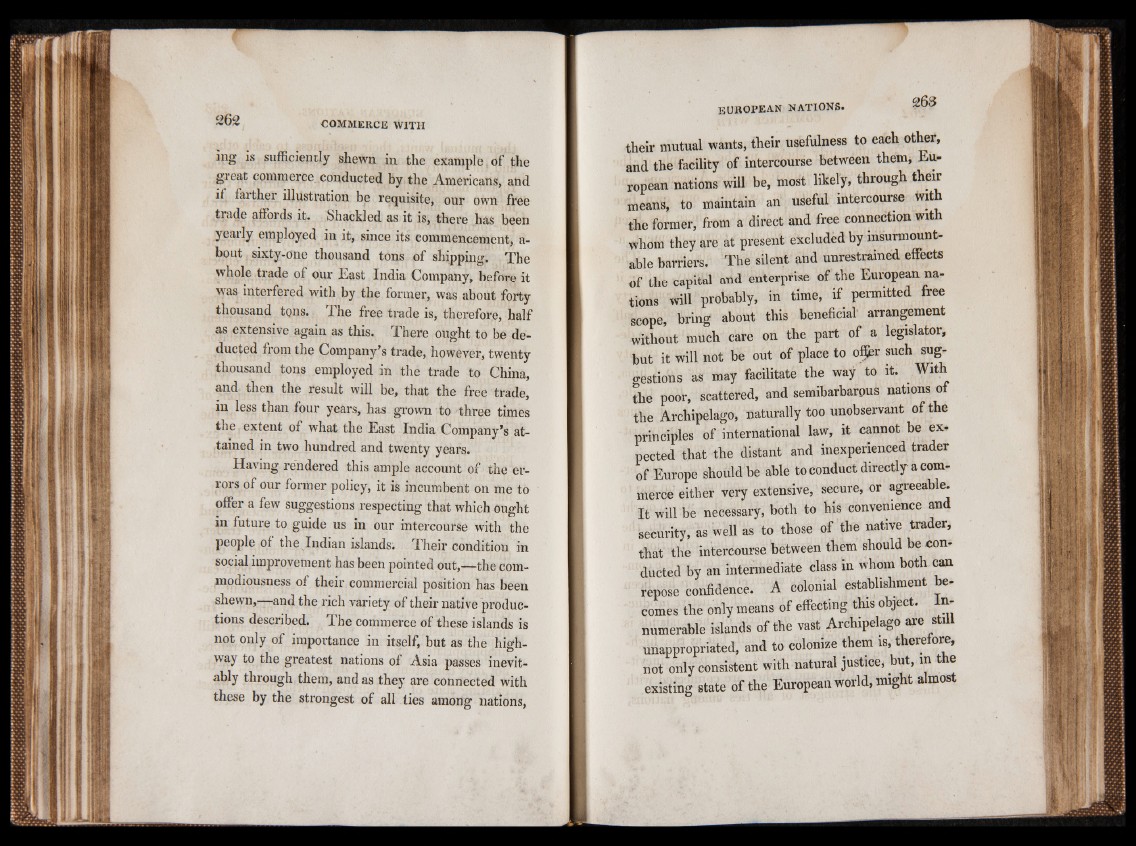
ing is sufficiently shewn in the example of the
gi eat commerce conducted by the Americans, and
if faither illustration be requisite, our own free
tiade affords it. Shackled as it is, there has been
yearly employed in it, since its commencement, a-
bout sixty-one thousand tons of shipping. The
whole trade of our East India Company, before it
was interfered with by the former, was about forty
thousand tons. The free trade is, therefore, half
as extensive again as this. There ought to be deducted
fiom the Company’s trade, however, twenty
thousand tons employed in the trade to China,
and then the result will be, that the free trade,
in less than four years, has grown to three times
the extent of what the East India Company’s attained
in two hundred and twenty years.
Having rendered this ample account of the errors
of our former policy, it is incumbent on me to
offer a few suggestions respecting that which ought
in future to guide us in our intercourse with the
people of the Indian islands. Their condition in
social improvement has been pointed out,——the commodiousness
of their commercial position has been
shewn,—and the rich variety of their native productions
described. The commerce of these islands is
not only of importance in itself, but as the highway
to the greatest nations of Asia passes inevitably
through them, and as they are connected with
these by the strongest of all ties among nations,
EUROPEAN NATIONS. 263
their mutual wants, their usefulness to each other,
and the facility of intercourse between them, Eu-
ropean nations will be, most likely, through their
means, to maintain an useful intercourse wit
the former, from a direct and free connection with
whom they are at present excluded by insurmountable
barriers. The silent and unrestrained effects
of the capital and enterprise of the European nations
will probably, in time, if permitted free
scope, bring about this beneficial arrangement
without much care on the part of a legislator,
but it will not be out of place to offer such suggestions
as may facilitate the way to it. With
the poor, scattered, and semibarbarous nations of
the Archipelago, naturally too unobservant of the
principles of international law, it cannot be ex«»
pected that the distant and inexperienced trader
of Europe should be able to conduct directly a commerce
either very extensive, secure, or agreeable.
It will be necessary, both to his convenience and
security, as well as to those of the native trader,
that the intercourse between them should be eon-
ducted by an intermediate class in whom both can
repose confidence. A colonial establishment becomes
the only means of effecting this object. Innumerable
islands of the vast Archipelago are st
unappropriated, and to colonize them is, therefore,
not only consistent with natural justice, but, in the
existing state of the European world, might almost